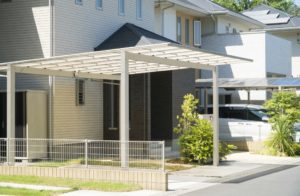- To enhance blood flow, consider providing compression stockings or elevating the legs.
- Provide help with regular physical activities, including walking, swimming, and cycling.
- Promote a diet packed with antioxidants and fiber to maintain good health.
- Quit smoking and avoid prolonged sitting or standing periods to ensure optimal health while caring for your loved ones.
Caring for a senior with venous insufficiency can be challenging, but understanding the condition and how to best manage it will help ensure that your loved one receives proper care. Venous insufficiency occurs when veins do not effectively carry blood back to the heart from the lower extremities due to weakened or damaged valves in those vessels.
With some knowledge about venous insufficiency and following these simple tips on caring for seniors with this condition, you can provide your loved one with better quality of life.
Regularly check the feet for signs.
Regularly checking the feet for signs of swelling, inflammation, or ulcers is crucial when caring for a senior with venous insufficiency. It is necessary to ensure that any potential complications are identified early on and addressed promptly.
Venous leg ulcers are a complication that can occur in seniors with venous insufficiency and can be particularly troubling if left untreated. Checking for venous leg ulcers involves looking for open sores or wounds in the lower leg and feet, which can be painful and difficult to heal.
Taking preventative measures and regularly checking the feet can help seniors with venous insufficiency avoid such complications and maintain healthy feet and legs. Ensuring that the feet are checked regularly and any signs of swelling, inflammation, or ulcers are addressed promptly is crucial for maintaining their overall health and well-being.
Try to alleviate the condition.
Trying to alleviate the condition is the most important aspect of caring for a senior with venous insufficiency.
Provide compression stockings or leg elevation.
When caring for a senior with venous insufficiency, it is important to provide compression stockings or elevate their legs to improve blood flow. These methods help to alleviate the discomfort and swelling caused by venous insufficiency.
Compression stockings work by applying pressure to the lower legs, reducing the diameter of swollen veins and helping the blood flow more easily. Leg elevation also promotes blood flow by reducing the pressure in the veins caused by gravity.
It is essential to understand these techniques to provide effective care for those suffering from venous insufficiency. By properly implementing these methods, seniors can experience improved quality of life and reduced discomfort.
Assist with daily exercises that encourage circulation.

As people age, circulation can become a problem. One way to address this is by helping seniors with daily exercises to encourage better blood flow. Walking, swimming, and cycling are great options, but ensuring your senior does them properly and safely is essential.
You should be there to provide assistance and encouragement. Benefits of improved circulation include better overall health, lowered risk of cardiovascular disease, and improved brain function. These exercises are also a great way to get seniors moving and help maintain their independence. By assisting with these activities, caregivers are essential in helping seniors stay active and healthy.
Encourage a healthy diet rich in antioxidants and fiber.
When caring for seniors with venous insufficiency, it’s essential to encourage a healthy diet rich in antioxidants and fiber. Antioxidants help protect blood vessels from damage, while fiber promotes healthy digestion and helps prevent constipation, which can contribute to venous insufficiency.
By following a diet high in antioxidant-rich fruits and vegetables such as blueberries, spinach, broccoli, and fiber-rich whole grains, seniors can improve their overall vascular health and maintain strong veins.
In addition to a healthy diet, it’s important to promote regular physical activity and avoid prolonged sitting or standing, which can exacerbate venous insufficiency symptoms. Encouraging senior loved ones to make lifestyle changes that support healthy veins can significantly improve their quality of life and reduce the risk of complications associated with venous insufficiency.
Enhance your lifestyle.

When caring for a senior, it’s important to prioritize their health and your own. One way to enhance your lifestyle and overall health is by quitting smoking. Although it can be difficult to kick the habit, the benefits of quitting are undeniable. Not only can it reduce your risk of heart disease and other health issues, but your loved one will also benefit from not being exposed to secondhand smoke.
Additionally, avoiding sitting for long periods is crucial for maintaining good health. Sitting for extended periods can increase the risk of various health issues like heart disease, diabetes, and certain cancers. Light exercise or stretching can help combat these negative effects and keep you and your senior loved one healthy and happy.
Seek medical advice.
As a caregiver for a senior with venous insufficiency, it is important to be vigilant about any changes in their symptoms. If you notice that their condition is worsening, you must seek medical advice from a doctor immediately. Not only can venous insufficiency cause discomfort and pain, but it can also lead to more serious complications if left untreated.
Therefore, being proactive and seeking medical attention as soon as possible can help manage symptoms and prevent potential health risks. As a caregiver, you play an essential role in the health and well-being of your loved one, and taking swift action when necessary is crucial in providing them with the care they need.
These are just a few tips to help you provide better care for seniors with venous insufficiency. As their caregiver, your role is crucial in ensuring their well-being and enhancing their overall quality of life.



















